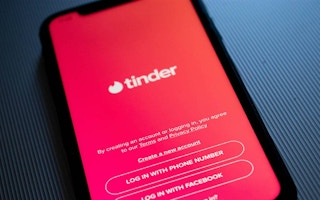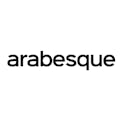What is going on?
The quest for a life partner can be challenging and the global pandemic has not played in favour. How are we supposed to meet our soulmates when locked down in pyjamas all day long? Online dating apps are the unglamourous answer to this question. It is therefore not surprising that digital love brokers experienced a renaissance, with market leader Tinder reporting 2020 as its busiest year ever and competitor Hinge tripling its revenue.
These new matchmaking methods fill an important void in an ever more hectic lifestyle on a transition towards a more digital existence (as of 2020, 26 per cent of newlyweds met online). The influx of new users prompted online dating platforms to move away from a philosophy of casual meetups towards open and all-encompassing expressions of oneself – in terms of sexuality, gender, race and beyond. But what’s shiny on the outside is not necessarily as polished on the inside – do online dating platforms also walk the talk when it comes to their internal culture?
We could not help but wonder… if Tinder had a sustainability profile, would we swipe right?
What does the data tell us?
Exchange-veteran Match Group, the company behind Tinder and Hinge, has a sustainability score that suggests serious room for improvement. Within the roughly 8,400 companies of the Arabesque S-Ray United Nations Global Compact Universe, the company ranks in the bottom 9 per cent.
Seemingly important dimensions like Diversity, Employment Quality, Human Rights and Labour Rights are also well below the neutral point of 50/100, with Labour Rights dropping as low as 26/100. Tinder’s culture was in fact so toxic that it drove away one of its co-founders who later sued the company for sexual harassment—she goes by the name of Whitney Wolfe Herd, the founder of Bumble.
Although we’d be keen to further examine recently-listed Bumble, which made headlines with its female empowerment approach to online dating and employee-friendly policies (you may have heard of its new “unlimited paid holiday and collective week-long leaves” policy), the company’s sustainability information is too sparse to build a reliable non-financial profile on it.
What can we do?
When it comes to matters of the heart, follow your feelings. But when it comes to matters of sustainable investing, we suggest following the data.
Even though current sustainability credentials in the online dating world are all but impressive, the new digital way of finding love seems to be here to stay, with the apps becoming platforms for much more than just matchmaking. This is shown by options on popular dating apps to express one’s position on certain movements or whether or not two doses of the Covid-19 vaccine have been administered.
For us investors, online dating offers a pragmatic path into the ‘Social’ dimension of “ESG”, and we encourage everyone to get involved—at least on a portfolio level. May the best “sustainability dating profile” win.
Arabesque is a global group of financial technology companies offering sustainable investment, advisory, and data services through advanced ESG and AI capabilities.









